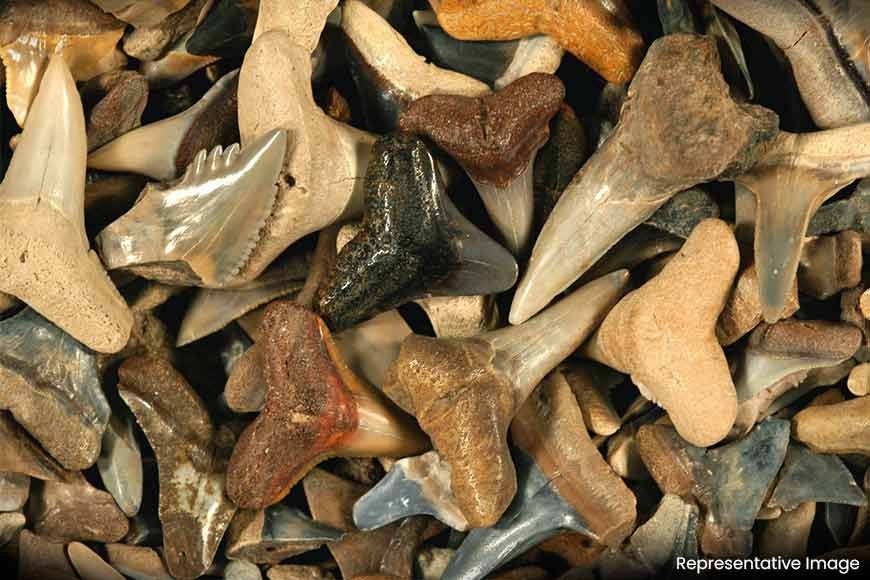Bengali scientists discover shark fossil in Jaisalmer

Ever since Satyajit Ray filmed ‘Sonar Kella’ (The Golden Fortress), in Jaisalmer, Bengalis discovered the city in droves. The film was released in 1974, leading Jaisalmer to become a Bengali pilgrimage spot of sorts and there is no escaping Ray's Sonar Kella in Jaisalmer. Now in a unique coup, Bengali archaeologists recently discovered the teeth of a new shark species from the Jurassic era from the Jaisalmer basin. The researchers collected fossils of over 30 teeth specimens of the shark species from the region that were dated between 160 and 168 million years ago.
Two Bengali archeologists, who were part of the expedition, have once more revived Bengal’s connection with the beautiful desert city after Ray. In a rare discovery, the teeth of a new species of the Hybodont Shark of the Jurassic era have been reportedly found for the first time in Jaisalmer. The discovery was made by a team comprising Krishna Kumar, Pragya Pandey, Triparna Ghosh, and Debasish Bhattacharya from the Geological Survey of India (GSI), Western Region, Jaipur.
Jaisalmer and its surrounding area are a rich storehouse of fossils and have been a hotspot for scientific and historical research. Four GSI (Geological Survey of India) archaeologists -- Triparna Ghosh, Debashis Bhattacharya, Krishna Kumar, and Pragya Pandey, went on a geological mission and during their fieldwork, came across the fossils of the shark teeth. This aroused their curiosity and on closer examination, they realized they had unearthed material that virtually provided a brand-new insight into the habitat of the sharks of the Jurassic period.
The research team has named it Strophodusjaisalmerensis after the location where it was found. There is no trace of the shark’s body though, only fossils of its teeth were discovered. Hybodont sharks have been reported for the first time from the Jurassic rocks (approximately between 160 and 168 million years old) in the Jaisalmer region of Rajasthan. They comprise an extinct group of sharks that were dominant in both marine and fluvial environments during the Triassic and early Jurassic times. However, Hybodont sharks started declining in marine environments from the Middle Jurassic until they formed a relatively minor component of open-marine shark assemblages. The Hybodonts finally became extinct at the end of the Cretaceous period 65 million years ago.
It is the first time a species belonging to the Genus Strophodus has been identified from the Indian subcontinent. This is only the third such record from Asia - the other two being from Japan and Thailand. This discovery marks an important milestone in the study of Jurassic vertebrate fossils in the Jaisalmer region of Rajasthan and it opens a new window for further research in the domain of vertebrate fossils. The collected specimens are now housed in the Palaeontology Division of the Geological Survey of India, Jaipur. This species has recently been included in SharkReferences.com, an international platform operating in association with the International Union for Conservation of Nature IUCN), the Species Survival Commission (SSC), and Germany. This finding was published in ‘Historical Biology’, a peer-reviewed scientific journal that publishes papers on developments in the sciences concerning the history of life through geological time and the biology of past organisms. Professor Sunil Bajpai, heading the department of earth sciences, Indian Institute of Technology (IIT), Roorkee is a co-author of this publication and played a significant role in the identification and documentation of this discovery. The two Bengali scientists will be remembered by the global scientific community for their crucial roles in tracing an extinct species that strutted on the earth’s surface millions of years ago.









